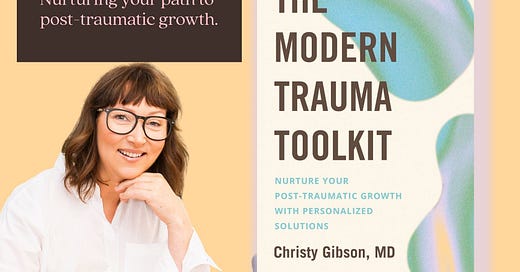All doctors have been through trauma.
Don’t believe me?
Just think about it.
How many professions encourage you to avoid your physical needs? I can think of countless days where I would go a dozen of hours between any kind of oral intake, food or drink. I swear, I finished some hospital shifts in acute renal failure.
The lack of sleep is astonishing. We’ve all heard the figures that our post-call rounding is done with the cognitive capacity obscured as with three alcoholic beverages. But the long-term implications of shift work and lack of adequate sleep are both physiological and psychological. And relational - we pay a high price for our service amongst family and friends. Not to mention the consequences to adverse patient care, which always leads to shame.
Let’s talk shame.
We are taught that our job is to preserve the health of people who are sick or even palliative. Failure to cure is deemed our responsibility. Never mind that every single human body will die. We are doomed to fail. Yet it causes undue emotional damage when we take on such an impossible task.
What if we considered healing instead of curing? Dr. Rachel Naomi Roman asked this question beautifully. It’s a very different context. To heal can mean manage suffering, existential or otherwise.
When we are managing patients who die, despite resuscitation, who undergo acute decompensation, or are unable to manage their chronic illness our responses to not identify and process our own emotions. Is to go to the next door and 10 to the next patient. There was a time, where Canadian family doctors would join Balint groups. We will talk about these difficult cases. But as society becomes more hyper individualistic, we spend less time commiserating about the pain of the profession itself.
It’s traumatic. Let’s talk about it.
My book, The Modern Trauma Toolkit, was born today. It explains the neurobiology behind our stress responses, why our survival strategies are amenable to somatic tools, and the policies that will help our collective trauma.




